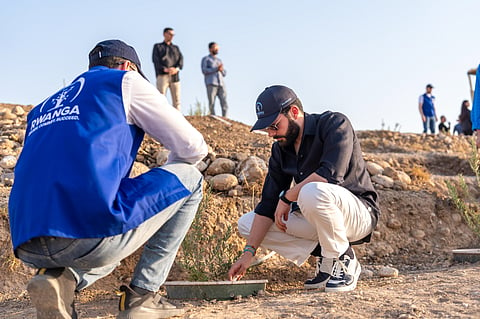Iraq’s solar villages to tackle climate crisis
Rwanga Foundation and Idris Nechirvan Barzani spearhead renewable energy projects

The Kurdistan Region of Iraq (KRI) is leading a sustainability revolution, reshaping development models by turning rural villages into self-sustaining communities.
Recent projects, driven by the Rwanga Foundation and its founder, Idris Nechirvan Barzani, have introduced renewable energy, innovative water systems, and modern agricultural practices, making villages in one of the world’s most climate-vulnerable areas resilient and economically secure.
Drought, desertification, and dwindling river flows have long strained agriculture and energy in the region, with Iraq ranking among the five countries most at risk from climate challenges. Electricity shortages and unreliable water access once seemed insurmountable. Today, grassroots initiatives led by the Rwanga Foundation are rewriting that reality.
First project
The Kulak Solar Village, inaugurated in May 2025 as Iraq’s first of its kind, has already become a model for transformation. Home to 200 residents, it is powered by 195 solar panels connected to batteries and inverters, guaranteeing stable electricity. The change has been profound: villagers can now refrigerate dairy and perishable products year-round, boosting both household income and food security.
“By tapping into solar energy and more importantly, the ingenuity of our people, we are transforming what was once a vulnerability into an opportunity and creating something unprecedented,” Idris Nechirvan Barzani recently stated.
Lower energy cost
Early results are clear. Families report lower energy costs, expanded agricultural ventures, and new jobs tied to solar system installation and maintenance — addressing youth unemployment in rural areas.
The success has spread beyond Kulak. Gri Bie village, where 43 households now enjoy solar power, and Qamish in Sulaimani Province have also transitioned, proving the model replicable across Kurdistan.
These local efforts align with international support. The International Labour Organisation has launched reforestation drives to combat desertification while creating forestry jobs, and UN agencies are advancing economic programs that enhance resilience and social cohesion.
Fuel savings
Analysts see strong potential for scalability, with the Rwanga Foundation aiming to expand solar village projects across Kurdistan and into central Iraq by 2030. With projects expected to pay for themselves within five years through fuel savings, reduced maintenance, and increased economic activity, the long-term benefits are promising.
As Idris Nechirvan Barzani emphasised: “Sustainability is not something we can afford to ignore; it is a necessity. By building resilient communities, we are giving people the tools to thrive where they are, and laying the groundwork for a more promising future.”



